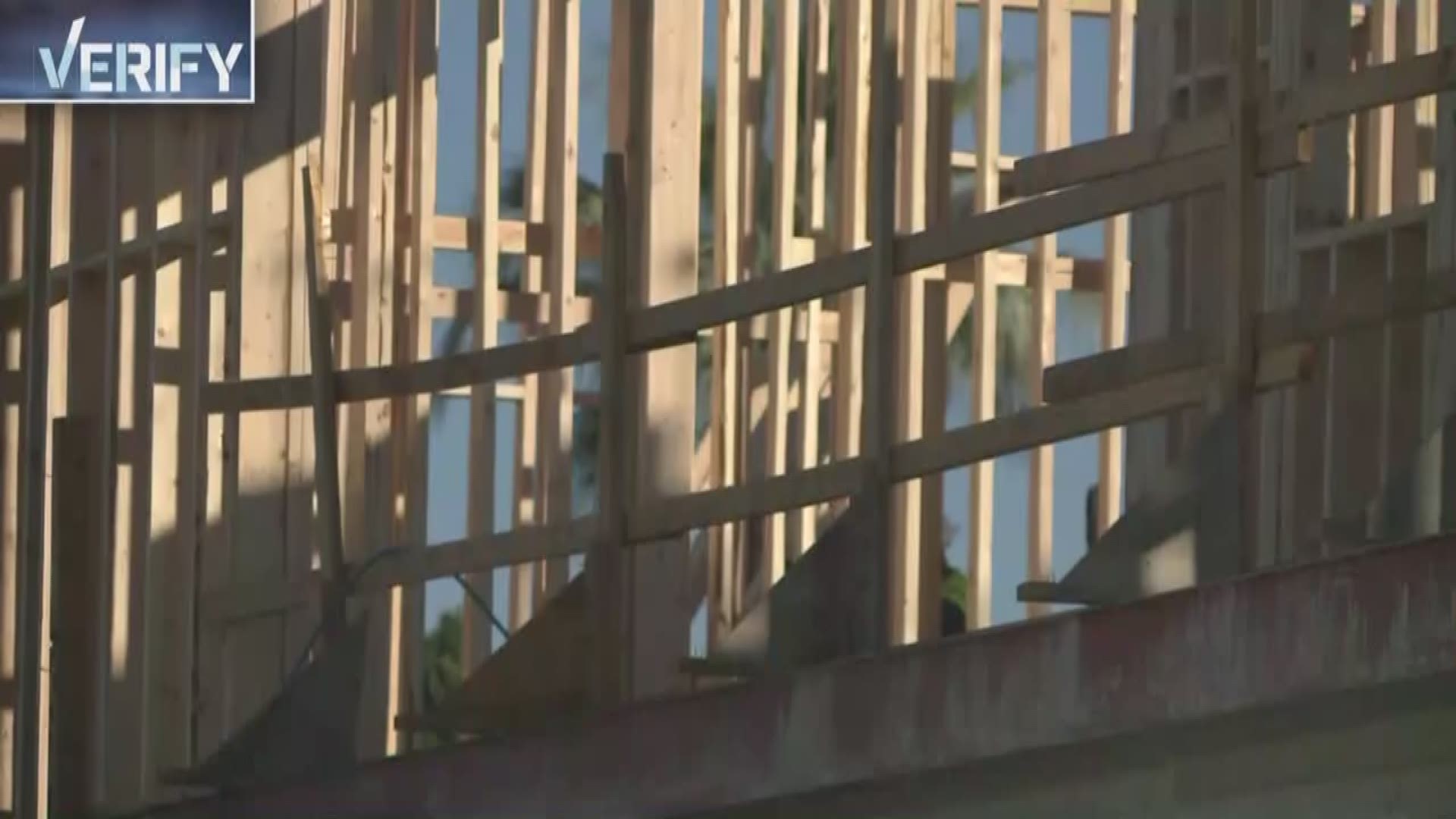PHOENIX – The city, even after a crippling recession, has always found a way to bounce back.
Phoenix saw the fifth-largest population growth of big cities across the U.S. last year.
The people who steer clear of the desert find it too hot, and the people moving here for jobs or an affordable cost of living may be the reason it’s getting only hotter.
According to an article by the LA Times, the urban heat island effect in Phoenix is major and measurable.
The construction boom over the last three years will only add to that, according to the National Weather Service.
“So the more buildings you have, the more pronounced heat island there will be -- the more noticeable, the more measurable it will be,” said Paul Iniguez, a meteorologist for NWS.
Phoenix saw the greatest increase of average temperatures over the last 50 years in the U.S., according to Climate Central and the Weather Channel.
The same report in the LA Times that predicts we’ll see 130-degree temperatures in the next 80 years.
But Iniguez has his doubts it’ll get that high. He says we are no Death Valley.
He said the main effect may be on the duration of the heat.
“We do see an increase in the number of 80s and 90s that we have overnight. We also have more of a broadening of our heat season. It’s the idea that the heat is coming earlier and staying a bit later,” he said.
In the end, new asphalt and concrete turn up the heat.
Is there something we can do about it?
The city of Phoenix says yes.
Dan Klocke with Downtown Phoenix Partnership recognizes shade in the city is a major issue. Only 11 percent of the city is covered by trees.
“Greenery helps reduce temperature,” said Klocke. “We sort of went away from that as we developed air conditioning, and as we developed more out into the desert.”
So, if we have to build, Klocke says building densely has a smaller effect.
“If you build an apartment complex with 300 units in it, versus 300 family homes, you’re going to use a lot less water," he said. "You’re going to use a lot less energy."

